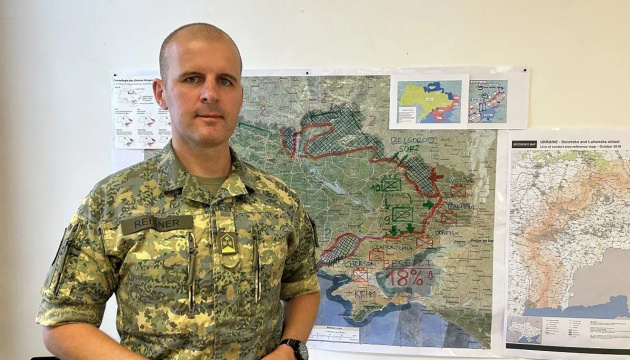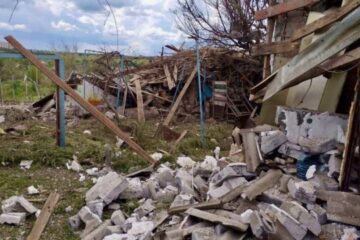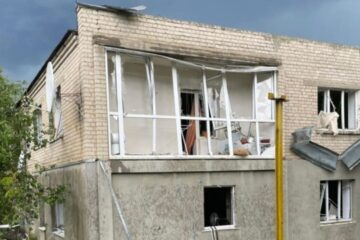
Russia has not abandoned its military objectives in Ukraine, and the recent negotiations in Istanbul have clearly demonstrated that.
Colonel Markus Reisner, head of the Officer Training Institute at Austria’s Theresian Military Academy, said this in comments to Ukrinform.
“These negotiations are merely for show. It’s all about buying time. That was evident the moment the composition of the negotiating delegations was made public. Russia sent individuals with limited authority compared to Ukraine’s representatives. Moreover, the Russians simply ignore the issues raised by the Ukrainian side,” he said.
At the same time, Reisner views the fact that Ukraine and Russia met in Istanbul as a positive development in itself. However, he said that for any future talks to be truly substantive and result-oriented, “the delegations will need to be more appropriately staffed.”
“Russia wants to pick up where it left off three years ago. From the Russian perspective, this is about addressing what they see as the ‘root causes of the conflict.’ That means denying Ukraine NATO membership, excluding it from the European community of values, preventing it from building modern armed forces, and forcing it to give up part of its territory. That’s the framework within which Russia wants to negotiate. They are not seeking a ceasefire,” Reisner said.
According to the Austrian colonel, Russia continues to pursue a military solution and appears to be relying on a strategy of slow, incremental advances.
“You could say the Russian army is crawling forward. But they remain far from achieving their initial war aims. The Russians are trying to stretch Ukrainian forces across the entire frontline. They aim to prevent Ukraine from forming reserves that could be used in a counteroffensive. Their assumption is that, through this war of attrition, they can eventually gain the upper hand over time,” he said.
Reisner also stressed that Russia is not fighting this war alone.
“Russia relies on support from several countries in its war against Ukraine. We all know who they are. For instance, China was prominently represented at the 9 May parade in Moscow – a clear signal of support. But there are others: India, which continues to purchase raw materials; North Korea, which must be recognized as an active party to the conflict; and, of course, Iran, which supplies equipment. There are also additional countries that, in varying ways, are helping Russia. This support is what enables Russia to continue the war. That’s why I keep emphasizing: Russia is not fighting alone. At the very least, North Korea must be openly acknowledged as a party to the conflict – this needs to be clearly understood,” he said.
In his opinion, this international backing gives Russia the confidence to act as it does – a confidence that was evident during the Istanbul talks.
“Building on that support, Russia continues to advance, steadily increasing both its troop numbers and the volume of equipment and weapons deployed at the front. Their pace may be slow, but they are still advancing. Ukraine must break this momentum and create a situation where Russia is finally compelled to come to the negotiating table in earnest,” the colonel said.
Commenting on the EU’s upcoming 17th package of sanctions against Russia, Reisner noted that the impact of new restrictive measures would only be felt over time – “time that Ukraine does not have.”
“The 17th sanctions package is expected to target Russia’s so-called ‘shadow fleet’ – the tankers transporting Russian oil, from which we indirectly benefit via intermediaries. But these measures take time – weeks, even months – and it could take years to bring Russia to its knees. Ukraine does not have that kind of time. On the battlefield, Ukraine is currently engaged in a delaying fight aimed at slowing the enemy’s advance. It urgently needs rapid and immediate decisions that will allow it to exert sustained pressure on Russia. That includes launching offensive operations with the appropriate means – not just sporadic strikes every few weeks or months, but a concentrated effect, something that puts real pressure on the Russians,” Reisner said.
According to him, sanctions are a long-term tool, while Ukraine urgently requires the resources and capabilities to conduct an effective defensive war now. Sustained and increased support from partners remains key to achieving that objective.
The Ukrainian and Russian delegations met in Istanbul on May 16. Ukrainian Foreign Minister Andrii Sybiha later stressed that the world must not allow Russia to use the meeting as a pretext to prolong its aggression.
Source: Austrian expert says Russians are buying time, have not abandoned their military goals



